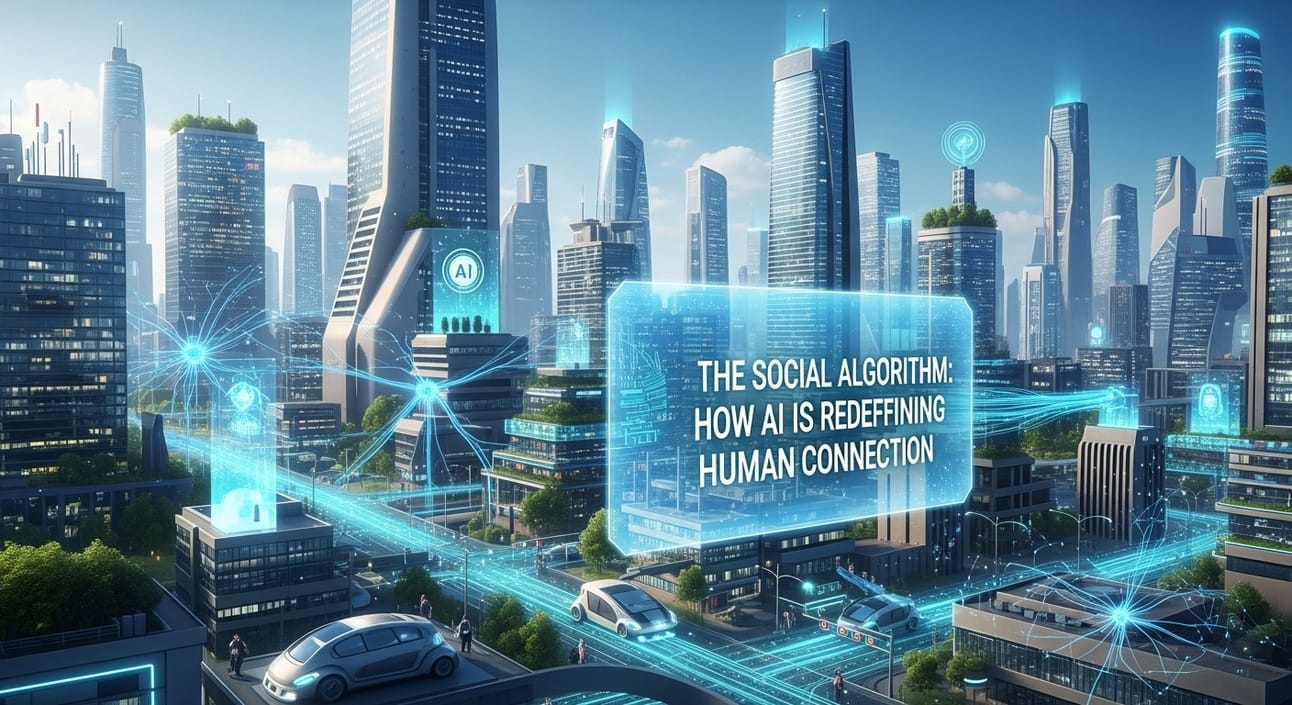- Digital Brain
- Posts
- The Social Algorithm: How AI is Redefining Human Connection
The Social Algorithm: How AI is Redefining Human Connection

Hello, Digital Brain reader!
We've explored AI's transformative power across industries, its role in smart cities, and even its creative and environmental dimensions. Today, let's delve into a realm that is profoundly human: our relationships and social connections. Artificial Intelligence, once seen primarily as a tool for efficiency, is increasingly weaving itself into the fabric of our social lives, from how we meet new people to how we communicate and even experience companionship. How is your "Digital Brain" adapting to this new social landscape shaped by algorithms?
AI as a Social Connector: Bridging and Building
AI's influence on our social interactions is already pervasive, often subtly guiding our connections:
Social Media Algorithms: The feeds we see, the content we engage with, and the people we connect with on platforms like Facebook, Instagram, and TikTok are heavily curated by AI. These algorithms aim to maximize engagement by showing us what they predict we'll like, often leading to stronger connections within specific interest groups.
Dating Apps: AI-powered matching algorithms analyze preferences, behaviors, and even conversational patterns to suggest compatible partners, fundamentally changing how many people initiate romantic relationships.
Community Building: AI can help identify and connect individuals with shared interests, fostering niche communities online, from hobby groups to professional networks, making it easier to find your "tribe."
Language Translation: Real-time AI translation breaks down language barriers, enabling cross-cultural communication and fostering global connections that were once difficult or impossible.
AI as a Companion: The Rise of Digital Relationships
Beyond connecting humans, AI is also emerging as a form of companionship itself:
AI Chatbots for Companionship: Platforms like Replika, Character.AI, and even advanced LLMs are being used by millions for conversation, emotional support, and even virtual friendships or romantic relationships. These AIs can "learn" your personality and preferences, offering personalized and often comforting interactions.
Virtual Influencers and Avatars: AI-generated virtual influencers are building massive followings on social media, blurring the lines between real and artificial celebrity, and creating new forms of parasocial relationships.
Support for Vulnerable Populations: AI companions are being explored to combat loneliness in the elderly, provide support for individuals with social anxieties, or offer non-judgmental listening for those struggling with mental health.
The Double-Edged Sword: Challenges and Ethical Dilemmas
While AI offers new avenues for connection, its social integration comes with significant challenges:
Echo Chambers and Polarization: AI algorithms, designed to maximize engagement, can inadvertently create "filter bubbles" and "echo chambers," reinforcing existing beliefs and limiting exposure to diverse perspectives, potentially leading to social polarization.
Authenticity vs. Artificiality: The line between genuine human connection and AI-mediated or AI-generated interaction can become blurred, raising questions about authenticity, manipulation, and the nature of real relationships.
Privacy and Data Exploitation: Social AI systems collect vast amounts of personal data, raising concerns about privacy, data security, and the potential for this data to be used for commercial or even manipulative purposes.
Potential for Loneliness and Replacement: While AI can offer companionship, there's a risk that over-reliance on AI could diminish the desire or capacity for complex, messy, but ultimately more fulfilling human interactions.
Ethical Implications of AI Relationships: What are the ethical boundaries when humans form emotional attachments to AI? What responsibilities do AI developers have in these scenarios?
The Future: Augmenting Human Connection, Not Replacing It
The most promising future for AI in social contexts lies not in replacing human relationships, but in augmenting and enhancing them. AI can be a powerful tool to:
Facilitate Deeper Connections: By helping us find common ground, overcome communication barriers, or even practice social skills.
Provide Accessible Support: Offering immediate, non-judgmental support for those who might not otherwise seek it.
Enhance Empathy: AI could potentially help us understand different perspectives or communicate more effectively.
Ultimately, the "Digital Brain" can help us connect, but the quality and depth of those connections will always depend on our human intention, empathy, and effort. Navigating this evolving social landscape requires discernment, critical thinking, and a conscious choice to prioritize genuine human interaction.
Stay connected, stay human, and see you in the next edition!
Sincerely,
The Digital Brain Team